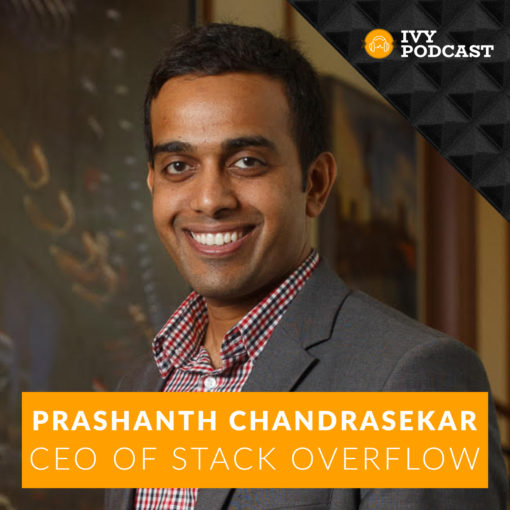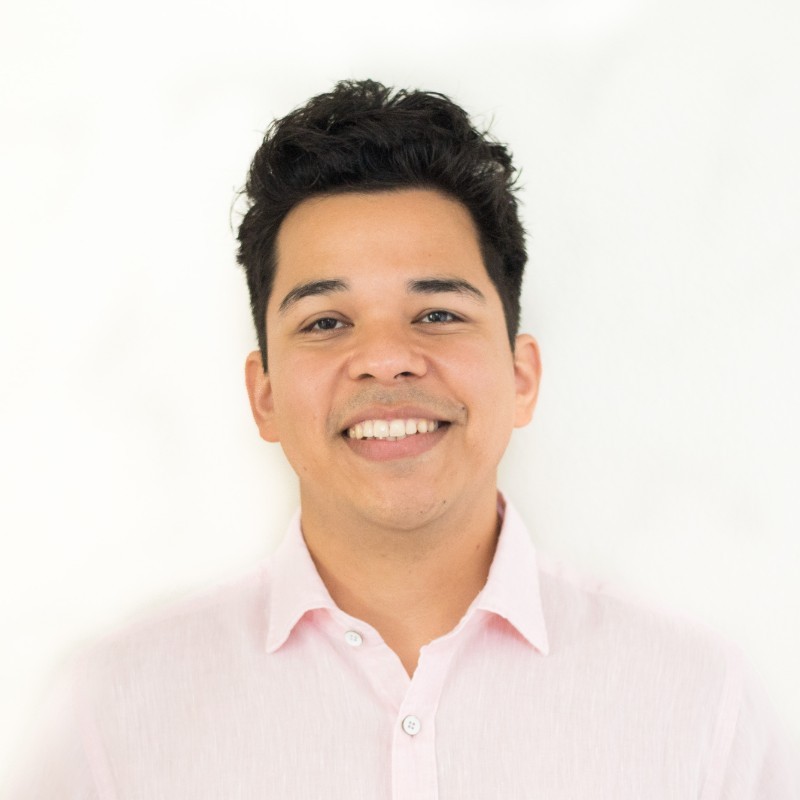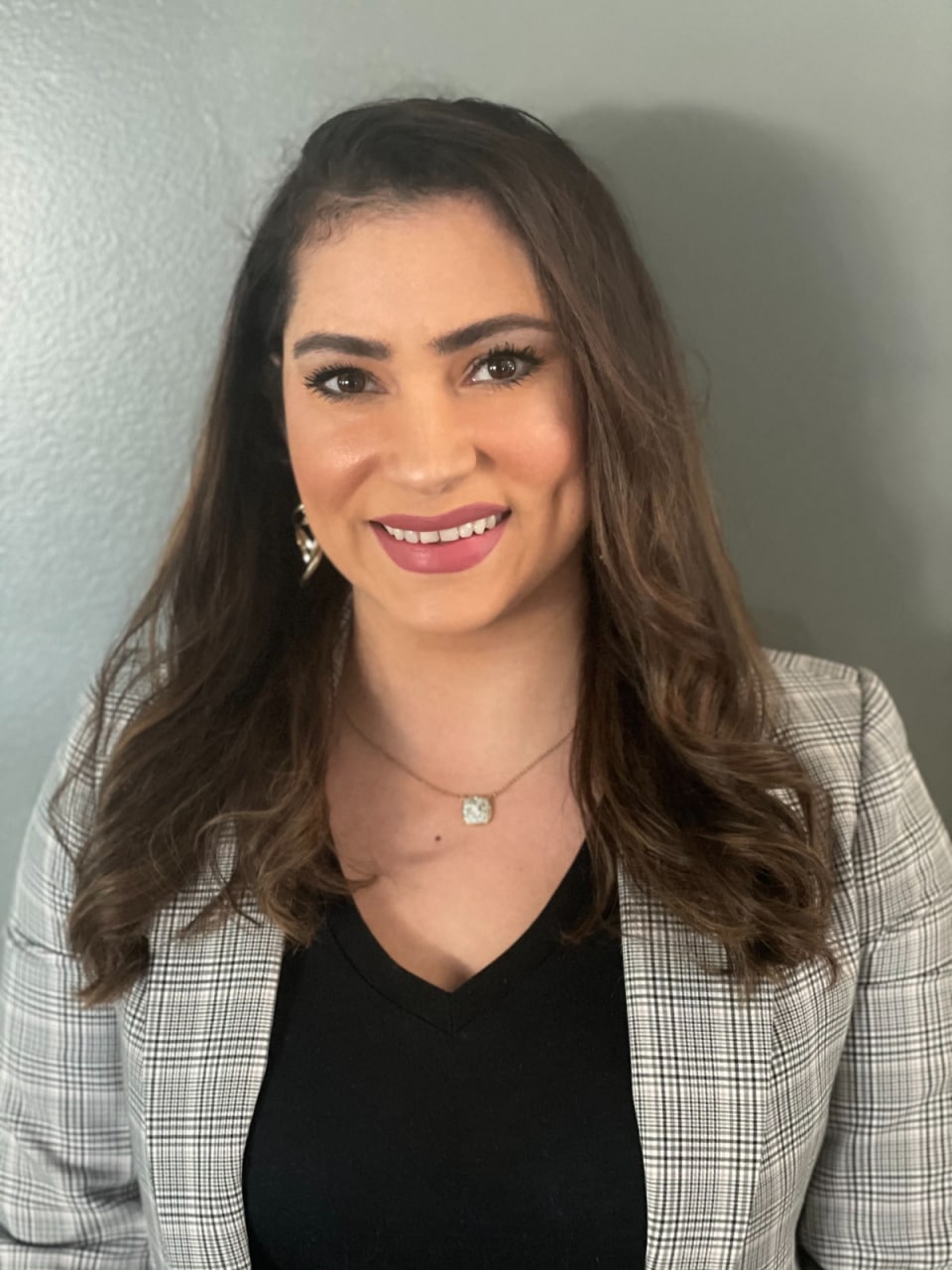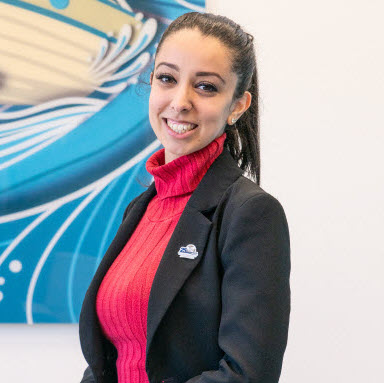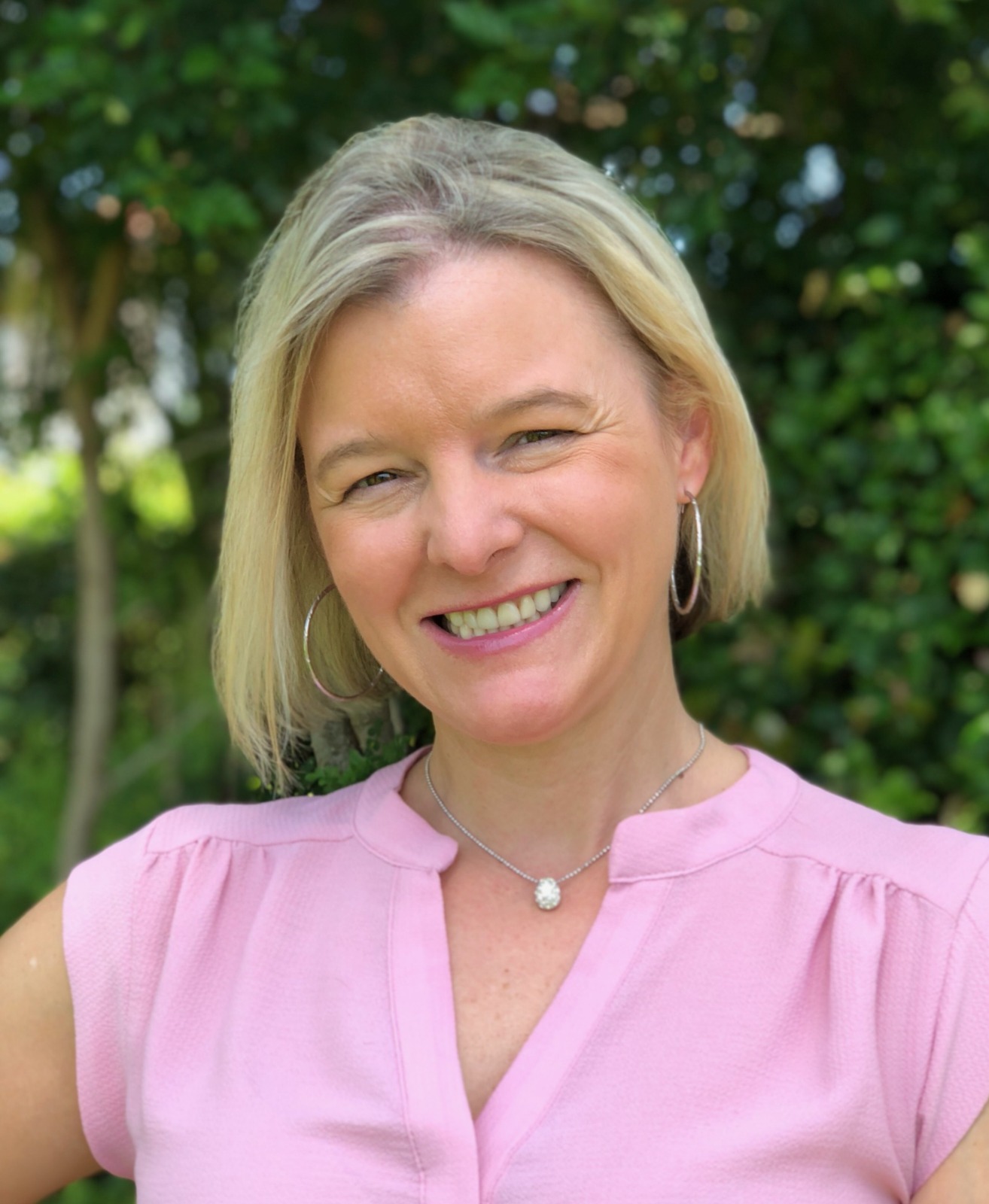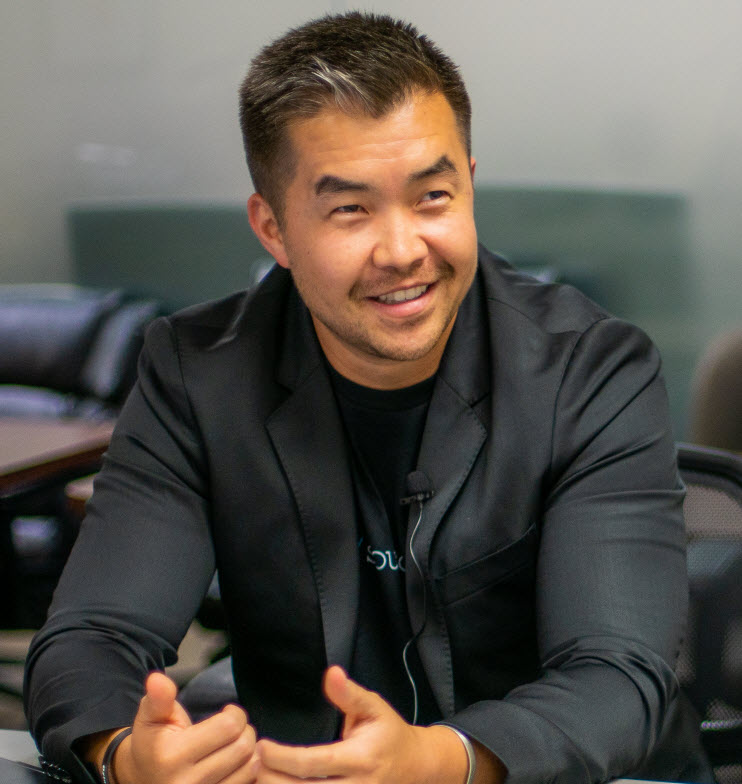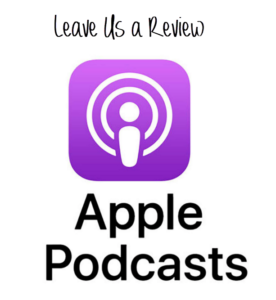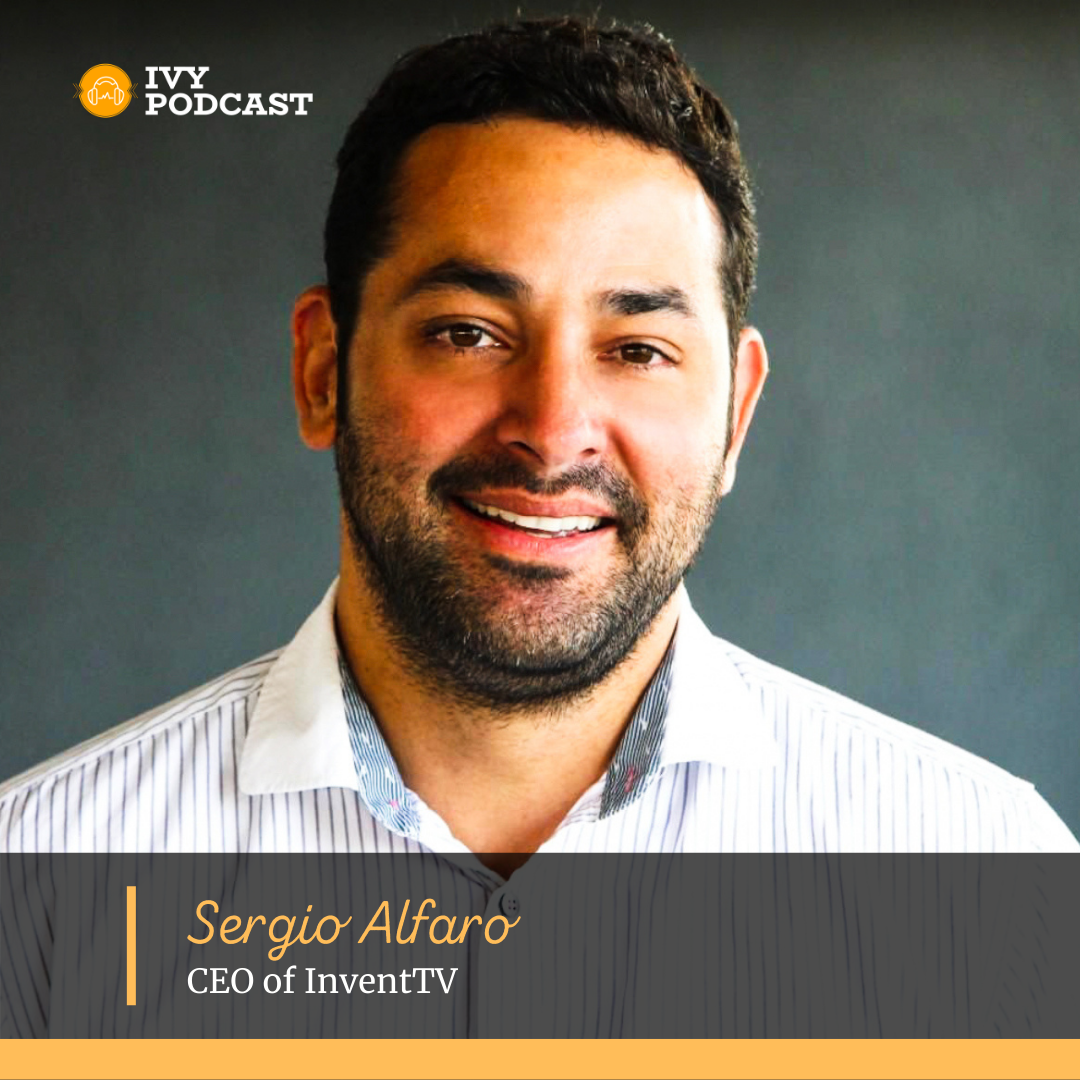
An Executive Producer and creative force, Sergio is committed to making culturally impactful content for leading networks. Responsible for the development and production of original programming, ranging from live events to specials and numerous critically-acclaimed reality series. Extensive knowledge and expertise in the areas of sales, finance, development and distribution. Production highlights include over 50 live specials and awards shows, including the Emmys, Grammys, American Music Awards, the 2008 Presidential Inauguration, and the Music Rising Concert, which benefitted the victims of Hurricane Katrina. In addition, Sergio has also produced shows such as “Real Housewives of Salt Lake City”, “Bringing Up Bhabie”, “Into Alaska”, “Chad Loves Michelle”, “LA Ink”, “The Rachel Zoe Project”, “The Next Big Thing”, “BBQ Pit Masters”, “Swamp People”, “Next 15” and more.
Episode transcription:
[00:00:00] Sergio Alfaro: There are no new ideas. I feel in our industry, the approach is like, if you think of all of the great shows as in like successful long term, they're all generally based around somebody's profession to some capacity, right? Like what they do and how interesting that is from, you know, Kat Von D, when she had LAE, Rachel Zhou, you know, doing design and like even the house, I was like, everybody's got something going on in their profession. [00:00:25] And then you tell the storyline, so from a start-over perspective. If I could give anybody advice as if you have an idea and you're going to pitch it, make sure you have a good character to pitch it with because ideas now, like they're great. But to sell, you gotta have that character. [00:01:08] My name is Sergio Alfaro. I am the CEO of InventTV. [00:01:11] Jahn Karsybaev: Sergio, thanks so much for finding time to join us on the Ivy Podcast today. Great way to start the 2020. Well, with conversation with you, tell us a little bit more about your background, your career path, where you've been. And then I want to spend a couple of minutes talking about your, your current company. [00:01:27] Sergio Alfaro: Sure. I started in the nineties with Ken Ehrlich and Ron Bacilli. A show called Motown Vibe. And from there really wasn't the live events space for a long time. Did the MES, we produced a fundraiser in New York after 9/11. Did the halftime show for the opening of the Superdome. I was part of a team that produced Obama's first inauguration. Like we did a lot of, that one wasn't with Kenner Lake. That was Ricky Kirschner, Lisa Gears. But yeah, did a lot of live events and then transitioned at some point during the writers' strike into this new thing called reality TV that I really didn't understand. And I did this little sizzle with a really good friend of mine, Jay Peterson. And he brought me over to this company called Original Media. And from there I learned what this reality business is, which is what I'm in now. It's great, great business to be in. [00:02:24] Jahn Karsybaev: Wow. That's super exciting, you know, completely different spectrums, you know, from Obama to, you know, to reality TV, that's super exciting. Tell us a little bit more about your current project, your current company. What are you guys focusing on and what are you guys building? [00:02:42] Sergio Alfaro: Well, InventTV, we have a lot of unscripted programming and specials, so our focus right now is we actually have a new approach on some of the content that we're trying to do. And I think what people need right now in general is just a change of pace, something that's, you know, going to make people happy when they're watching it. And you know, there's one project in particular that I'm very excited about that one of our partners brought, and Jeffrey Soros brought, introduced me to a guy named Arthur Brooks who writes for the Atlantic. And he's a teacher at Harvard who teaches happiness. And this guy in particular, in what this project could be just makes me beam inside. Like, I couldn't imagine a show where you could tune in with your family and by the time you're done with it, learn ways because it's not just like, you know, a show where I'm going to watch it, I'm going to smile. No, he could actually teach you how to be happy by hacking your brain or making you see things in a different way. So I just would love to put a program on air that after watching it, you know, after one season or after, like you literally would be a happier person, if we can create that kind of movement, like, Oh my God, that'd be ideal. I mean, that'd be so great. [00:04:00] Jahn Karsybaev: Wow. That's true. Cool. That's super exciting. And you know, that brings me, I've been investing in a lot of energy and kind of that mental fitness aspect. And a lot of the readings that I have been doing are all around happiness factory, and the brain's a muscle that you can really train, from that perspective. So I love that. Definitely, you know, when the show comes out or whatever it is, [00:04:25] Sergio Alfaro: Yeah, it really isn't. I did like this every time I did on the phone with them, I'm like a stenographer. I write everything down that he's saying I did all excited. Like, Oh my God, this is great. Very exciting. And I mean, he interviewed the Dalai Lama recently, and it's not his first time with the Dalai Lama. So this guy is pretty, very brilliant guy, Arthur Brooks. I really, I like him a lot. [00:04:47] Jahn Karsybaev: Well, that's super cool. I can't wait for that to come out. So as far as different trends and ideas, what is exciting you these days, whether that's in your industry or just something in general? So share with us to the extent that you can, what's super exciting to Sergio, or what are you looking to invest in? What are you, what do you see as the next big thing in a short period? Tell us a little bit more about that. [00:05:10] Sergio Alfaro: Yeah, I mean investment. I think it isn't that good. The character always, you know, in our industry, we like to find, we have a great casting department. Joey Jim Lee, who works with us is just an absolute star. This guy could find these diamonds in the rough and for us. You know, I'm excited about finding those new stories, those new characters, things that you haven't found before. Right? Like I like watching shows like American pickers, where these guys traveled the world and they go into these homes and you get to see these relics and stories of like these antiquities that they have. And, value aside, it takes you on this great journey and the characters on that show. They're just fun to watch. It's like, you feel like it's family, they're down to earth, you know, and I love even, you know, in the negotiations, one of the things I really like about that show, and these are the things that we're looking for and excited about is when he's negotiating with somebody and they're like, give me 20 bucks for it. You know, Michael, look at them and be like, it's actually worth like a hundred. So I'm going to give you a hundred bucks, like who does that? That's the kind of stuff I think for us, like in programming that, we want to find are those great, good characters, wholesome. But that tells a good storyline as well in television. That's what excites me in life. I love the stock market and I love playing with wood. I'm a laser. I laid all kinds of woodwork constantly, and that's always fun to find. New wood, new things that I'm going to put on the machine. [00:06:42] Jahn Karsybaev: That's super cool. You know, I can relate to the stock market, cannot relate to the wood part, so that's pretty cool. It's very diverse, I love it. I love your very, very unique perspectives and it's super cool. From an inventive perspective, and one of the topics that I'm very passionate about, I spent a lot of time talking to a lot of executives from different companies, all around innovation. And when it comes to innovation, as far as building that culture or, you know, fostering that culture of innovation, it's not easy, only a few companies that really succeed in this space. Everyone says that they're innovate. But see, you know, it just probably means a little bit, a little bit different. So with your organization, with InventTV, you know, just your name alone probably stands for that continuous innovation, you know, experimentation. I'm pretty sure that's at the forefront of your overall strategy as a company. Tell us a little bit more about that process. How does that work? What do you guys go through and just different strategies that really help you build that culture of innovation at your company? [00:07:46] Sergio Alfaro: Yeah, I mean, for us in particular, it really is about the look. The storyline is incredibly important and that's what we sell to begin with. Like what are the characters, what's the story. But then with technology and the looks and what we have to do to like, what's going to make our show stand out. I mean, the way I see it today. There are so many different gigantic platforms and I call them vortexes that you go into, right? What's going to set it aside from the rest. Like you have all these, you know, Hulu, Amazon, Netflix, HBO, Max, you have all of these vortexes that you get to enter now and then choose a program. What's going to make you stand out. I think it's the look and innovation wise, I really lean on the people that are much smarter than I am with that technology, which are DPS and, you know, our directors of photography that really say like, look at this new lens, look at this new camera. This is what we can do with it. And just, you know, even today with COVID, we've had to adjust quite a bit in how we shoot things and how we record things and how we put things out to the market where it doesn't feel COVID right. Like an interview could feel as if two people are actually standing next to each other in the same room. When in reality they're not, they're actually in two different states. So that kind of, and it's the youth, by the way. So like, for me, it's like the innovation. We really listen carefully to the new up and coming, you know, DPS and directors. And also obviously the incredibly experienced ones that are always tinkering because they do, they never stopped tinkering. So, you know, we lean on them to show us what is going to be, what's going to make this show stand out, and look uniquely different. So, cameras, lenses, editing, you know, all of that for us. [00:09:32] There's so much technology that we get to play with. And it's just getting better and better and easier for us. I mean, now look, you have a phone that shoots in 4k. I mean, you could grab like nowadays we can do, you know, just take a picture or record it on your phone. And we could put the video into a series that's on television, you know, from our phone, which I think is great. Technology is always evolving. Yeah. [00:09:59] Jahn Karsybaev: Wow. That's super cool. Yeah. You know, you mentioned, you use the word tinkering and that to me is a synonym of, you know, experimentation, you know, and then a lot of people perceive innovation that has something grand is like, you know, disruptive, but it could be some very small improvement to whether, you know, your current techniques of doing things or your current processes. So that's very interesting where you're sharing. [00:10:25] Sergio Alfaro: Just the lens with our DPS. All of these setups in one little change of a lens, one different angle. Like everything makes such a difference in our industry and how it's going to be perceived, you know? [00:10:39] Jahn Karsybaev: For sure. And so for our listeners who are not familiar with InventTV, what are some of the biggest shows that you guys have produced or what are you guys most famous for? What are you most proud of to date? [00:10:53] Sergio Alfaro: Most proud of or everything? Yeah, I think most proud of what's coming, because, and it goes down to the happiness of it all. I mean, we did a beautiful show in Alaska. That was great. I think right now, as in today, we're probably most known for Housewives of Utah, Salt Lake city, which is on Bravo, which has gotten a ton of attention, you know, it's a great show, Bravo has been great partners to us over the years. I worked with them way back on the Rachel Zoe days and a few other projects. So that one is probably the most like getting a lot of attention right now. We've been across the platform, you know, we've been on. We've done things for Snapchat, BT, Oprah Winfrey Network, Bravo. And right now proud of, I have to say, just because of who I am, it's going to be that happy show. I mean, we got a lot of great crime shows out in the market right now, a lot of good projects, but I'm a happy guy. So if I could do something that affects the world in this way, and again, like one of our partners and I consider him a dear friend, they actually joke and in a fun way with me that I'm always happy. Like I'm in a good mood. It's just my spirit. So when Jeffrey brought us the happy project that I couldn't have dove it faster. Like, yes, I love it. Let's do it. So that's probably what I'm most proud of and it's not even out yet. [00:12:23] Jahn Karsybaev: Well, awesome. Well, I can only imagine because you know, the energy, I can feel it and now can't wait for that to come out then really experienced. That's kind of that happiness factor. That's going to be super cool. When it comes to really surrounding yourself with the best people, with A-players, with just rock stars, what are some of the strategies that really help you attract the best folks, the best professionals to your teams. And then in terms of the strategies to retain that talent, just want to talk a little bit about that. [00:12:57] Sergio Alfaro: On the celebrity side or on the back-office side? [00:13:00] Jahn Karsybaev: Anything, anything that really helps you succeed and, you know, take your company to the next levels, whether that's your celebrities or the kind of the supporting cast or whatever. Just curious, what are some of the recommendations? [00:13:13] Sergio Alfaro: Sure. Well, on the production side, in a team, it's just being kind and respectful. You know, we are definitely a family office where everybody understands the hurdles of life, like the kids and what's going on, especially in COVID. And I think treating everybody as a part of the team, nobody has a I or a credit taker in our company. Everybody is a team like I am nobody's boss, I'm everybody's, you know, we're a team. And that, I mean, I don't know a different way of releasing it, but we all lean in, you know, everybody has a voice in our office. Everybody contributes to the creative and, you know, you never know who's going to give you that little didn't think about that. You know, we're not precious about like, oh, you're an assistant or you're a director. You can't be a part of this. Like not at all, like everybody's in on it, even with our agents, when we have our agent calls or our partners calls, we bring the whole family in, like everybody's on the call from, you know, the coordinators to the president of the company. Everybody's in the mix. [00:14:21] And I think that just fosters a level of like a family that keeps each other going, like everybody's rooting for each other to succeed. I know a lot of places, other companies where it's competitive. Like I got to outsell this person or I got to work harder and I need to prove. Like, no, man, just be cool. Be a part of the team, like help each other out because in success we are all at the end of the day. You know, I mean, one of my longest employees I've had, she's been with me over 12 years and she was a coordinator, she's VP of production now. Every step of the way, she'd be like, I'm not ready to do this job. And she always was, and she's brilliant and has been with me literally forever on the talent side of things. We're really getting a level of celebrities right now and the way we're doing it, I have to thank the Kardashians for, we have a very clean approach. I think what they did with their brand, in general is brilliant about their program. They were, what made them successful in my opinion was how raw and honest they always worked. They just, they didn't care. I don't mean that bad way they didn't care as in, this is what we know. And like, I will do what I'm going to do. I'm going to act the way I'm going to act. And that rawness is what grew that, you know, that brand for so long. [00:15:42] And for us from a celebrity stamp point, you know, go back probably four or five years, I would talk to certain musicians or celebrities or athletes, and they be like, I can make a million dollars in a concert tonight. Why would I do an unscripted show pass? Well, I have a very different approach to that. Now I speak to some pretty high profile individuals and not say, are you as big as Paul McCartney? No. Are you as big as George Clooney? No. Will you ever be? Probably not. You look at, even if you Google, you know, the net worth of Taylor Swift, or like really big names, Bano, blah, blah, blah. They're not billionaires. I could name two Kardashians that are, I can name more. Reality stars that have become billionaires. So if it's about money and it's a money play for you, don't tell me you could make a million a night because that's short-sighted, build a brand, create yourself, you know, something where you become a household name. [00:16:42] Then, if it's about money for you while the business you're in is great. That's gotten you some attention, but come over to our side and I'll show you how you can become a billionaire, create a household name. And that really gets their attention where it's like, Oh shit. And that's everything from big name actors to musicians where it's like, I didn't think about it that way. [00:17:04] Jahn Karsybaev: Yeah, that's very interesting. Yeah. You know, I like what you said in terms of really that family aspect, when it comes to attracting the actual employees for your organization and treating them as such, I think that goes for any industry or any type of organization, whether that's Fortune 500 technology company or, you know, it's a smaller startup, right. Exact same mentality from kind of the leadership perspective, really fostering that type of culture, so that's, you know, that's very interesting and to take it a little bit further in terms of the interview process, when you interview folks or candidates that, you know, going through interviews for your company, give us a glimpse of what does that interview look like? Do you get creative? Do you keep your traditional? What's the interview with Sergio is like? [00:17:49] Sergio Alfaro: Well, in our industry, it's actually very focused, with regards to depending on what job we're going to end up putting them into. So if it's for a specific show, we look for that demonstrated capability in that genre. Right? It's not that we wouldn't put them into something else, but when people come in, like, Hey, we're doing something in Alaska. We’ll be looking for people that have that cinematic tone that had done nature shows before. So we really focus on that part of it versus if we're doing a reality show like a housewife show. [00:18:21] They really needs to have that skill set and talent because it is a very different skill set. From an interview perspective, I like people that are honest and that life hasn't been perfect the whole time. I like to learn. You learn from failure. You really do make a mistake, make it once, make it fast and then move on. I think Warren Buffet says that if you're going to fail fast so that you could learn from it, I'm a true believer in that. So I interview wise when people come in and it's like, oh, I've been raped my whole life. Everything's been perfect. I've never had an issue. Like I like asking the question, like, what's the worst job you ever had? Or like, have you ever been fired and why? Like it throws people back because nobody wants to put that forward. But to me that rawness and honesty might give me a glimpse into what you've learned. I don't see it as a bad thing necessarily, but it could actually be a benefit too. You'll never make that mistake again. I mean, if you're anything like me, you make that mistake once you program it in your mind and you never do it again. Right. So I look for that kind of honesty of like, not success, but also failure, you know? Like what, what has your life been like? And when it's too perfect. Yeah. Usually it's all bullshit. Yeah. [00:19:36] Jahn Karsybaev: Yeah. Probably not a good signal and something around kind of being self-centered from their perspective. [00:19:43] Sergio Alfaro: I have it all to like people where I've actually had somebody pitch a show that they said they produced. I'm like, actually, we wrote, that's our show. And he's like, oh my God, I was not. And then they get to the truth of it all, but I did everything or if they may say a little bit too much about the past, I don't like negative or negativity around our environment. [00:20:09] Jahn Karsybaev: Yeah, that's pretty interesting. And, you know, it's funny how these principles are so simple in the sense that I recently interviewed a CEO of Deloitte, one of the biggest consulting companies and when him and I were talking about very similar question, that it was almost exactly the same concept, from a standpoint of really keeping it simple and also giving the opportunity for a candidate to talk about some of their failures matter in the sense like, you know, to come across as you were perfect or not. Okay. Like, what did you learn from that? And what was kind of that thought process as you went through that particular failure? I think that's pretty cool. So for this, if you're going to be interviewing with Sergio, you have a little bit of insider information, right? And what are some of the most in demand and very hard to find sets in your industry? Iis there one particular thing that really stands out, especially recently, that you were like, man, this type of skill set is just so unique, unicorn, is there such a thing? [00:21:12] Sergio Alfaro: Yeah, there is, we call them predators, which is a producer editor because in today's market too. Like you have to do so much to get a show sold, right? Like you gotta find the talent, you gotta go and interview them, do some scene work, edit it, write it up. Like there's all these different things that you have to do. And when you're developing, it costs a lot of money to do that. [00:21:38] Right. So you have to hire a camera guy, an audio guy, a sound guy, like sound, audio, same thing. But you know, the producers, you gotta do all these things and there's these incredibly talented people out there that have the ability and they are very tough to get a hold of. Because once you have one, you don't let them go. We have a couple in our portfolio, but they have an ability to get out into the field, pick up the camera, shoot a scene, come back and edit it. Like, they start to, or even produce and edit it. Like, this is what I need, it's not just, it's almost like, what do they call those knives that have all the stuff in it? [00:22:18] The Leatherman you remember that? Yeah. Like these little pocket knives and you can, Oh, here's a scissors and a screwdriver. And these guys and girls are so talented in that ability that those unicorns are great and difficult to find since you have one person kind of overseeing a lot of different things. [00:22:41] So those are our unicorns and show runners. Like. Yeah, no runners are everything in our business. They are the ones that in the once we sell something we're still involved, but they're the ones that are out there, executive producing and making sure that the vision and what we sold is going to be actually delivered to screen. [00:22:58] And there are some brilliant people out there that, you know, we've worked with and will continue to work with. [00:23:04] Jahn Karsybaev: Very cool. Yeah, that's very interesting. Definitely very unique, very niche. I would imagine, you know, it takes a lot of great deal of recruiting and sourcing and, you know, just trying to find that type of talent. [00:23:16] Very interesting, in terms of, what I like to call, the content diet of Sergio. What you consume on a daily basis that, you know, helps you stay, you know, ahead of the game, self-improvement to anything that you read and follow, give us your sources of information. [00:23:35] Sergio Alfaro: For our industry, it's pretty straightforward, you know, Variety, Deadline Hollywood. I think for following stories, we read the newspaper still, you know, we get the Sunday times and you open up and you find a story in the paper and you're like, Oh wow, that's interesting. Let's go find out what that's about, whether it's, you know, an extreme murder case, because now you have something for ID or oxygen, because so many people are into the crime world or just, you know, something that stands out. I mean, if it makes the LA times, and it's amazing, it's almost like a lot of people do this as well, but it's like the ambulance chasers for insurance companies. Remember that that's us, you read the paper and you read a good story. It's like, shit. We call the casting department and we call our producers like, find this person, get them on Instagram, just send them a private message, see how you can get to them because you got to get to them. You'll be surprised how many times you reach out. It's like, Oh, we've already been contacted by X, Y, and Z, and Instagram also, it's, you know, hunting and finding people on there that are interesting and have a good following, but haven't been discovered yet in the general world. it's also good because it's just, people are so raw on there and you get to see so much, you know, they really let you in. [00:24:54] Jahn Karsybaev: That's pretty cool. One of the last questions I have is, and I think it came from one of our audience members in terms of, on your website, you have some very big names listed to see, you know, celebrity wise, in terms of you growing your company to the levels where you're dealing with, you know, the kind of top level solve, whether that's celebrity status or the business experts and so forth, any recommendations for some of the kind of early stage career professionals that are looking to get into this type of business? What is something that you wish you knew that, you know, now that you know, you would have done differently or something that, you know, you did, that you would recommend? [00:25:37] Sergio Alfaro: That's a good one. I mean, if you're starting off from the very beginning, I guess what I would say to anybody is an idea. There are no new ideas. I feel in our industry like what the approach is. Like, if you think of all of the great shows, great. As in like successful long-term, they're all generally based around somebody's profession to some capacity, right? [00:25:59] Like what they do and how interesting that is from, you know, Kat Von D when she had LAE Rachel. So, you know, doing design and like even the house, I was like, everybody's got something going on in their profession. And then you tell the storyline, so. From a start over perspective. If I could give anybody advice as if you have an idea and you're going to pitch it, make sure you have a good character to pitch it with because ideas now, like they're great, but to sell, you gotta have that character, you know, we've come up with some amazing ideas that I think are like jaw dropping and fantastic. But you don't have the character to go with it. You don't have the expert that goes with it. That is actually like, you know, entertaining. Don't pitch your family, just don't everybody says, Oh my God, I got an uncle. I got this. Like, my family is crazy. We should be on TV. It's never the case. You'll never be on TV or you will, but it's just that those are the tough ones. The other one is don't. Pitch celebrities that you don't have because the thing that we get most, and I'm telling you, this is probably a weekly thing for us. Somebody will pitch a show and they'll be like the greatest reality show on her Angelina Jolie and the kids. [00:27:12] And boom, there it is. You're like, do you know her? No. Do you know her manager? No agent? No. So you have no connection. You're just saying Angelina Jolie. Yeah. It reminds me of the movie Elf when the writer, the animator shows up and he's like, tomatoes, you like tomatoes? What, what'd you do with tomatoes like that? The whole book was going to be based on nothing. Right. You got to know them. If you're going to pitch somebody, get a good character, and if you're going to pitch a celebrity, reach out to them, connect, you'd be surprised how many times we've actually gotten to pretty big names that they either didn't think of the idea or they wanted to do it right. [00:27:50] Jahn Karsybaev: Well, you know, I love that. And thanks for thinking of that, you know, recommendation right on the spot. I love that. And that was a great recommendation, Sergio, anything in closing in terms of, is there one book that you're a big fan of that you recommend to others? [00:28:03] Sergio Alfaro: Yes. There is ice. It's funny. When, when I saw that as a question, you know, it made me smile because I think I irritate people with how much I talk about this book because I truly, truly love it. The dog. Hands down one of the best books ever, have you read it? I [00:28:22] Jahn Karsybaev: Haven't, but I've definitely heard many times. [00:28:26] Sergio Alfaro: I'm not a sneaker head. It's just not my world and it got recommended to me by a good friend, Andrew Lee, Nike founder. But what I love about it is that it's that story. Like people just think that, you know, life comes easy. Like, Oh, you got you're Nike, you're filming. You're rich. And everything was as it is for you the whole way. Like success has struggle, man. You really got to, you win the lotto, you got to really put it in. You're going to have big ups. You're going to have big downs. This is what the world's about. But Phil Knight and his story and what this whole book is about. This guy really struggled. I mean, he self admitted, horrible encyclopedia salesman. That's what started with his feet killing him, walking in Hawaii, as he started his shoe company. We, you know, put plastic in a waffle iron. That's how the shoe print actually came to be like all of these different things for him in particular. And why I love the book so much is he was always on the brink of bankruptcy. He was always on the brink of failure, going to jail, people going after him for all the wrong reasons. Just trying to take them out. Like I will not wear Adidas for nothing more than how many bad things they did to try and take down the little guy that was trying to make it. He just had so much struggle until he finally made it, but it's like, You're talking 20 years of just never giving up, constantly getting hit. That is pushing the Boulder up. Kilimanjaro, not the mountain. Like this guy is literally, it's just a great story. And there's some, I won't give it away, but there's some touching moments in there too, where, you know, as a reader, like you get choked up and you're like, oh, damn, that's interesting. It's really, it's a fantastic book. Highly recommended. [00:30:11] Jahn Karsybaev: Wow. That's super cool. And I'm actually trying to pull up my fault so I can show that it isn't my Kindle. I haven't gotten to it yet. [00:30:19] Sergio Alfaro: No I'm telling you when you finish that book, they're going to be like, not expected. It's not a book you would expect to pick up. Like, I don't want to, I don't want to read about Phil Knight and Nike great. So why did Nike he's rich? Who cares? Right? It's a great story. It really is a great story. [00:30:34] Jahn Karsybaev: Awesome. Love it. Love it. Those are great recommendations and Sergio, thanks so much for your time. Great. You know, valuable insights, personally learned quite a bit through this very short conversation with great energy. I loved it. Definitely appreciate the time we'll stay in touch with you. Perhaps we could do another episode in about a year. See how whenever you want. Thank you so much. I very, very appreciate your time today. You got it.
Welcome to Ivy Podcast! On this Executive Leadership Podcast we interview top executives from Fortune 500 with a focus on strategy, innovation, negotiation and everything about leadership.
Our Podcast for Executives features Thought Leaders who share practical insights for effective leadership, continuous innovation and strategy execution.
Ivy Podcast is a rapidly growing Executive Podcast, which covers topics like Hiring and Retention Strategies, Talent Acquisition, Innovation, Digital Transformation and much more.
On this Leadership Podcast, you will find conversations with the most accomplished executives from Fortune 100 companies. We aim to cover a broad range of industries and create a learning platform for the most ambitious and high potential professionals who are looking to learn from the most accomplished Executives on this Business Leadership Podcast.



